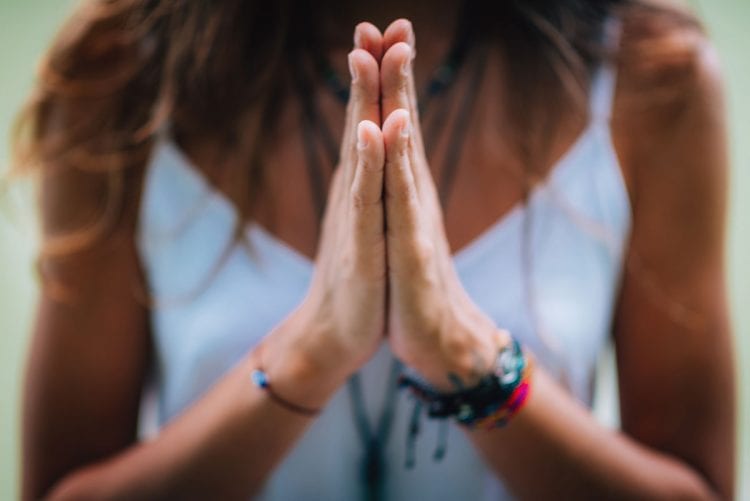Our Changing World
If the COVID-19 pandemic has you feeling afraid, lonely, anxious, or all the above—you are not alone.
Everyone has had their routines disrupted and plans for the rest of the year have changed overnight. Health and safety have always been paramount, but now they overshadow everything. Some people may be lucky enough to work from home, even with all its challenges. Others may have to put themselves in danger, remaining in essential jobs. Unfortunately, other people may not be able to work at all and must seek unemployment. Life during the COVID-19 pandemic, for most people, feels beyond our control.
The Importance of Improving Your Mood

In this type of climate, improving your mood might seem impossible. It might even seem a little selfish. But making sure you improve your mood is part of taking care of yourself and your loved ones who rely on you.
Your mental health is vital during the time of COVID-19. Keeping a clear head can help get you through an emergency. It can also allow you to make reasonable decisions during times of stress and to bounce back afterward. Improving your mood could also keep your immune system functioning well.
The Centers for Disease Control and Prevention (CDC) acknowledges that the best emergency preparedness tool is to remain as calm as you can be. Your response before, during, and after emergencies, can be influenced by how you’re thinking and feeling.
There are several steps you can take to improve your mood during the COVID-19 pandemic. The following are an example of a few changes you can make to help keep your mind calm during these difficult times.
Limit Your News Consumption
Turning on the news can be exhausting, but the need for more information can become addictive. The news during COVID-19 can seem filled to the brim with negative and pessimistic information. Fatality numbers, rising unemployment rates, and political pundits’ rule over the news—leaving little space to cover the uplifting stories that must be out there. It’s hard to look to the news each day for hope and find none.
Hopeful news makes people feel relieved and, perhaps, stop watching the news. So, many news programs choose stories that will attract the largest audience — frightening news that makes headlines. During COVID-19, it’s vital to stay informed using only reputable news sources. But it may help to limit the amount of news you take in to keep from feeling overwhelmed.
Choose a legitimate government agency sites and non-biased news organizations for your news. Decide on one time of day to check for new reports. Then, for the rest of the day, focus on your life at hand.

Stay Connected
The social support systems we typically turn to are off-limits during a pandemic. We can’t simply meet up at a restaurant with friends for dinner. Nor can we drop by our parent’s homes on the weekend for some moral support.
Though hugging and handshakes are not allowed, talking is still something people can do. Whether it’s through text, video calls, or old-fashioned phone calls, staying connected to others can help you feel less lonely. Find ways to get in touch with others without compromising social-distancing parameters.
Staying connected with others, no matter how sad or anxious you are, can lift your spirits and prevent depression. In a time when we must physically social distance, the best thing for us to do might be to remain close to others through communication.
Another way to stay connected is to have a pet. Many shelters are providing the public with opportunities to foster a pet or adopt a pet at a discount. Pets can help decrease stress and provide some connection during social distancing.
Find Positive Healthy Distractions
It might sound silly or frivolous during a COVID-19 pandemic but finding distractions that balance the seriousness of these challenging times is essential to improving your mood. Switching your mood from dark and serious to something more lighthearted might just take a few positive distractions.
Reading a book, watching a fun television series with your family, or playing online video games with friends are some examples of ways to lift your spirits. Focusing on hobbies, like gardening or work, that help calm your mind are also healthy distractions.
Get Some Fresh Air
You may be social distancing, but the outdoors isn’t out of the question as long as you remain at least 6 feet from others and wear a mask. The American Psychological Association (APA) advocates for some time outdoors to deal with emotions stemming from COVID-19 changes. Being in nature can boost your mood and improve your sense of well-being. Even if you live in the heart of the city, getting outside and breathing fresh air can make a difference to your health.
Spending time near greenery and trees, like a park or lawn, can improve memory, thinking ability, and attention span. Green grass and sunshine can also change a person’s mood to something calmer and more mellow.
Meditation, Mindfulness, and Reframing Our Situation

When your head is a mix-up of emotions, and you’re having difficulty keeping your calm, meditation and mindfulness might be the last thing on your mind. However, taking the time to meditate and switch gears may be just the thing you need.
The APA recommends mindfulness meditation as a way to manage stress. By allowing the mind to focus, it prevents your thinking from becoming scattered. Mindfulness meditation also stabilized your mood. For some people, meditation isn’t easy to achieve. Hypnotherapy is another very relaxed state of mind that can help improve mood and reframe our situation, just like mindfulness meditation. Eli Bliliuos for the NYC Hypnosis Center says, “Hypnosis is used to program your inner mind to remain calm during even the most stressful situations”. To learn more about hypnosis, click here.
These types of interventions help to switch the way we think about our environment. Instead of seeing things in a negative light, we can view situations as they are. In this more realistic view, we aren’t so overwhelmed by our predicament.
Staying Safe and Secure
Improving your mood during the COVID-19 pandemic not only makes you feel better, but it also makes the people around you more comfortable. No one wants to be near someone moody or unpredictable, even if they are someone they love.
We’re all in this together. Making sure we keep our emotions in check helps the people around us stay safe and secure.

